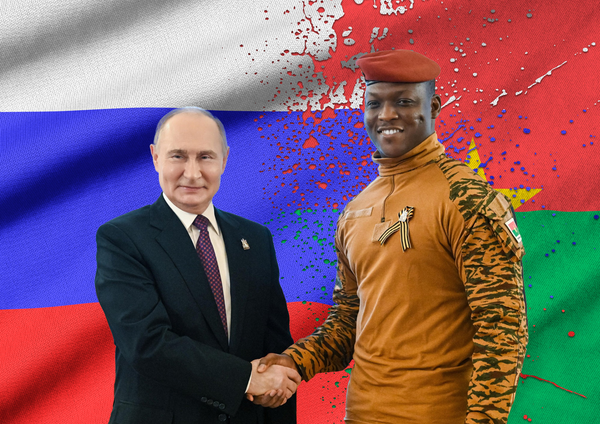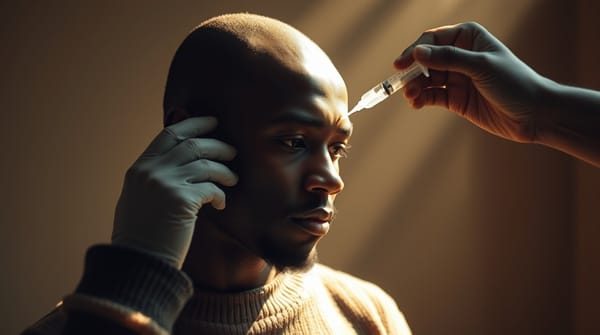Online disinformation (especially "fake news") costs the world economy nearly $ 80 billion a year. The world's stock markets are undergoing a negative impact of disinformation each year up to around $ 40 billion, including 0.05 % direct loss following "fake news". In the United States, the retirement savings sector is undergoing approximately $ 19 billion in deliberate financial disinformation each year. Disinformation affects all countries in all sectors and institutions around the world: Africa is not an exception.
The image of Africa, in the media, is generally represented by an underlying child and without instruction, living in slums in a traditional environment. Elsewhere than in Africa, this image is continuously relayed by the parents who say to their children: "Come on, end your meal because there are children who die of hunger in Africa. They do not have access to food like this! ».
Even if there is poverty and great cultural diversity in Africa (in the same way as on other continents), this does not correspond to the daily life of many Africans. The stereotypes disseminated by a negative media representation of Africa costs the African continent of billions of dollars. Investors and tourists avoid coming to Africa because they think that Africans live in the jungle in the middle of animals and that they are devoid of amenities and access to electricity. The media generally has a false image of the African tourism sector and these same media always convey this false idea that Africa lacks tourist potentials.
The surprises of the “Global South”
In July 2024, American actress Tiffany Haddish visited Zimbabwe, and to her surprise, she discovered a supermarket. She posted a video on her Tiktok account , while sharing her experience: "Hello everyone!" I'm here in Harare, Zimbabwe, and look at this supermarket! They have a supermarket, it's incredible! ». Then she goes to the fruit and vegetable department: “Look, there are organic strawberries. I love it and they sell sugar cane it's super good! They have their dates on the stalls. Look at this grocery store, it is immense, it's absolutely huge in Africa! ».
Then she repeats "believe me" 4 times, as if she had to convince her audience that she is really in Africa. She continues by exclaiming "Africa, Zimbabwe, I love to break your myths so much".
Passing in the supermarket butcher's department, Tiffany confirms to his subscribers that: "It doesn't feel bad!" ».
Continuing her discoveries, the actress marvels in the various alleys of the establishment stopping on "people magazines", where she makes it clear not to be "probably in any of them".
The video has become viral on Tiktok and recorded more than 943,000 views with 57,600 likes, 10,700 comments and 7055 shares. Many users have felt injured that she could be surprised to find a supermarket in Zimbabwe.
Some accuse Haddish of propagating stereotype where Africans would live primitively without benefiting from the Comodities. On Tik Tok, a person under the pseudonym of Shar💕 comments: "Did you think we are manging down? ». The actress replied: "No. But the media made me believe that all your foods are bought in external markets where goats and cows are waiting to be slaughtered, surrounded by various smells and flies. ”
Another user, Chinemerem, attacks the artist head -on: "Actress lost and failed, actress believing to be relevant. Your ignorance and stupidity will be your end. ”
Many people have found the offensive video but some like Daniel Freeman, gets positive from it: "What people do not understand is that she shows the Americans that we do not live in trees as they think 💯💯 I love this video".
After receiving many hostile reactions from its subscribers, other users and the media, the acrtice formally expressed page X (formerly Twitter), to respond to the concerns aroused by this case.
She accuses the disinformation propagated by the media of being at the origin of her reaction to the supermarket and affirms that she was trying to change the speech by showing "the fact that we were lied to this is what is bad." None of this is true. I just showed my community that she was wrong. ”

Agree that the problem lies in a unilateral vision of Africa in the media, @moxie31 wrote on X: "To be objective, the American media say that people live in huts and in villages without modernity without any access to drinking water. This is why black Americans are shocked when they visit Africa ... It is America's fault! ».
Cissey Matavire account confirms Tiffany Haddish's words in tweeting: "She doesn't think that. She clearly proves to her fans that Zimbabwe and other African countries are not what they imagine, we have washed their brain. ”.
On another X account, @Thejessicatapia , says that: “The media describe Africa always in the same direction; Many people do not take the time to check the information. So I'm not surprised that she thought this. ”
In a tweet tweet tweet , Tiffany replies: "Listen, friends!" There is nothing better than seeing reality with your own eyes! My heart is overflowing with joy and I wonder why we didn't do that earlier. This place is incredible! »»
Lake Victoria falls: without falling?
Disinformation and poor media representation discourage tourism and investors from coming to Africa.
At the end of 2019, unknown sources shared images of the largest waterfall in the world, the Victoria falls , a major tourist attraction between Zimbabwe and Zambia, claiming that the waterfall had dried up. This incomplete image mainly captures the Zambian side of the waterfall, which knows the lowest water pressure during the dry season - from October to December and January, which makes rocky formations clearly visible, especially along the Zambian side. This dry season, allows visitors to live a whole series of experiences, in particular clear and released views of the falls, swimming in the Devil's swimming pool, located on the rim of the falls, which offers visitors a breathtaking view of the falls, and thrilling adventures of rafting in bright waters, which are all impossible during the season when the pressure of the water is high. The image of the Zambian side dried up of this world famous monument made many tourists and visitors believe that waterfalls no longer existed, which led to massive cancellations of reservations with many tour operators.

Graphic representation of seasonal water levels of Victoria Falls © Africa Albida Tourism.
The African Geographic notifies: “In a region where tourism is vital, for the daily lives of the inhabitants, in terms of economic benefits, it is counterproductive to affirm such alarmist information in the international media. Several tourist operators have reported cancellations (including our own travel team which sought to reassure customers for a safari). Many Internet users have communicated on social networks by sending photos and videos taken in front of the falls with the hashtag #victoriafallscsisnotdry (Lac Victoria Falls are not dried).
Research from the Center for Strategic Studies for Africa shows that "the proliferation of disinformation is a fundamental challenge for stable and prosperous African societies . The scope of these intentional efforts to distort the information environment for political purposes is accelerating. “There is a close link between the extent of disinformation and instability. Disinformation campaigns are directly at the origin of deadly violence , encourage and validate military coups, silence the members of civil society and serve as a screen for corruption and exploitation . This has had concrete consequences on the rights, freedoms and security of Africans ”.
According to a new report , Africa loses up to 3.2 billion pounds sterling per year in inflated interest payments on sovereign debt due to persistent negative stereotypes which dominate the international media coverage of the continent.
In another study, entitled implications of Misleading News Reporting on Tourism at the Victoria Falls , the observation confirms “the persistence of disinformation and its intersectoral implications”. The travel and tourism sector must react to this growing crisis and implement measures to combat this misleading information.
However, African destinations have no shortage of sites to discover. They offer a wide variety of adventures and landscapes, highlighting the extraordinary diversity of the continent. Vibrant landscapes of South Africa with its turquoise blue lagoons, its unique coral reefs and its virgin and immaculate shores of Mauritius. The wonders of ancient Egypt with its millennial pyramids of Giza and its enigmatic sphinx; The animated souks and the architectural beauties of Marrakech. From the peaceful desert of the Sahara via the Maasai Mara national reserve to Kenya, the impenetrable forest of Bwindi in Uganda and its pink waters of Lake Retba, these are all assets that promise unforgettable experiences for all travelers.
Faced with the challenge of disinformation, governments, diplomats, the tourism industry, media organizations and technological companies must unite their efforts in order to give a positive image of Africa. The African continent has become aware of the challenges and the pressing need to coordinate the media, offering an innovative story whose objective is to show Africa as a continent combining tradition and modernity. Whether it is the call of wilderness to the tropical tropical getaway, Africa promises to be a trip to any other the same.
Charity Ani Kosisohukwu









